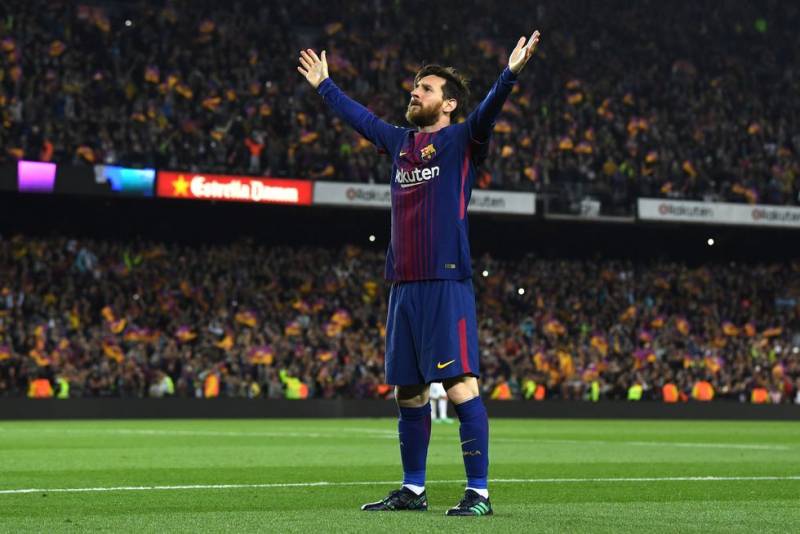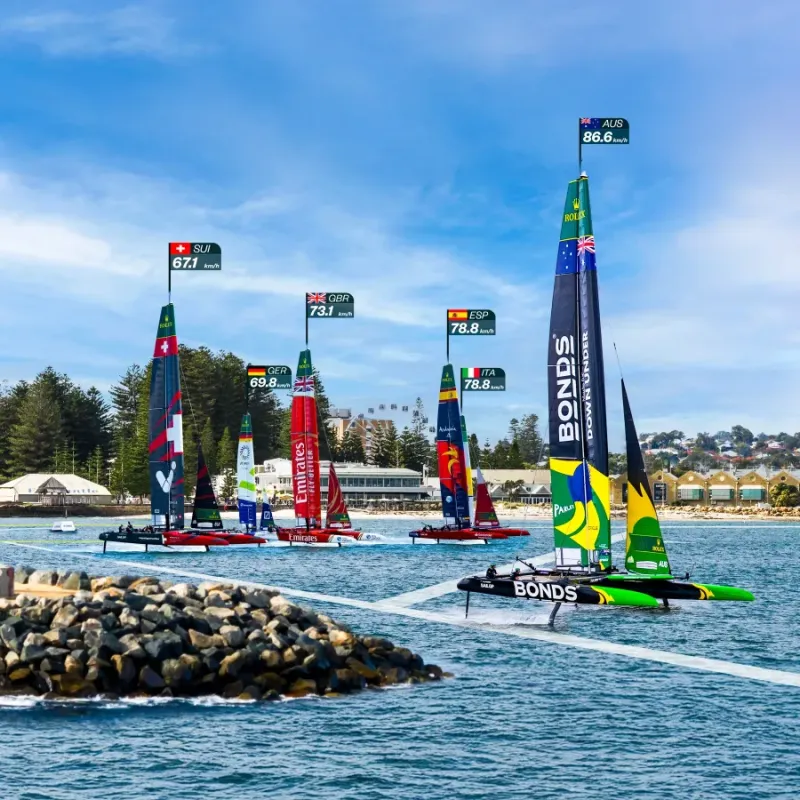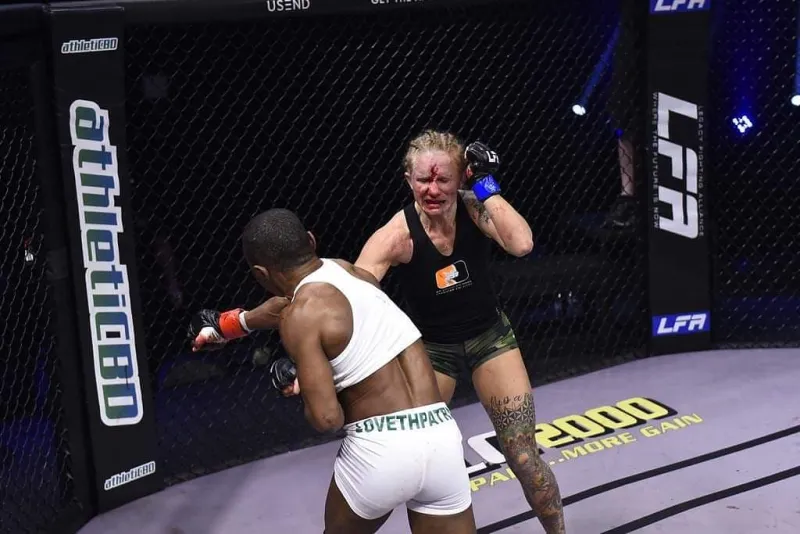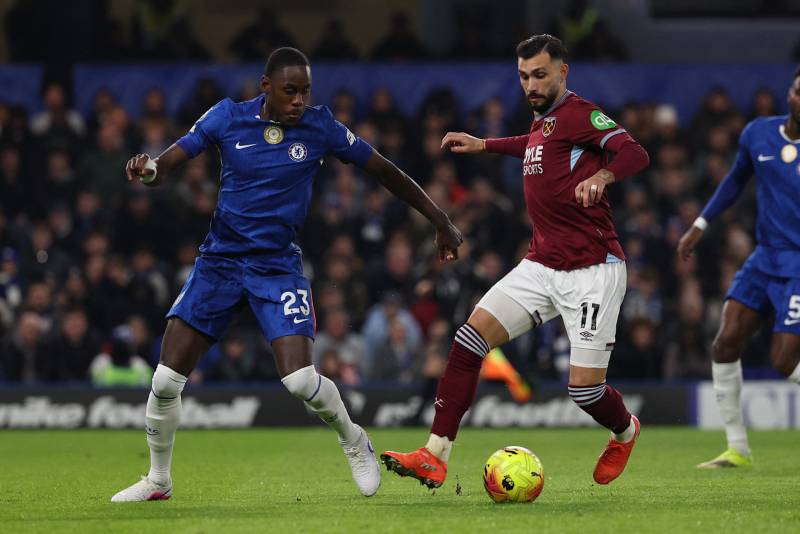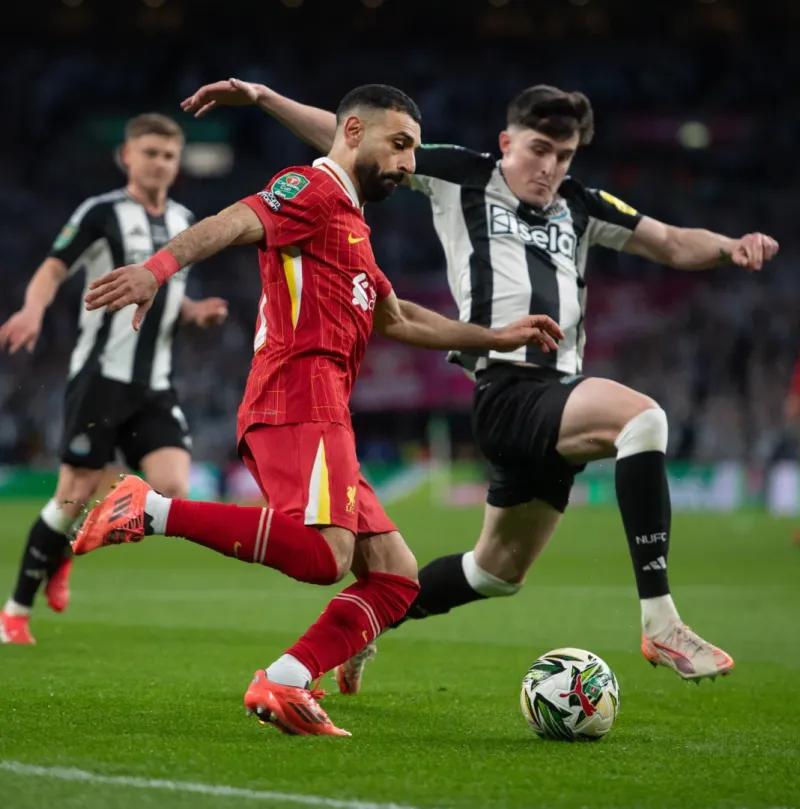Across 17 years, the forward has scored 672 goals in 778 games, won the Champions League four times, and won six world player of the year titles—all for one club. We will never see the likes of it again.
Growing up in Rosario, Argentina, Lionel Messi was the kid zigzagging around all the others on the playground, a natural phenomenon who grasped the physics of the game on a visceral level. He just understood how the ball, and he, and his teammates, and the defenders around him moved through space, all at once. He has a gift for touch and technique and continually drawing and redrawing mental maps of the field around him that simply cannot be taught, because he is not doing it all in any cognitive sense. It just happens, because it was meant to happen. The game moves slower for him. He gets an extra beat, and he's always a step ahead. The defender seems perpetually off-balance not just because of his pace and power and trickery and unpredictability, but because the marker is almost knocked off-rhythm, left playing catch up to the tantalizing improv of Messi's tune. There is a sense of such destiny while watching him play that it is a genuine shock to ever see him fail.
But back on those Argentine playgrounds, he wasn't always picked first by those who did not know him because, quite simply, he was tiny. At age 11, he was still only 4 feet 2 inches tall, and a doctor diagnosed him with a growth hormone disorder. He began treatment, and his parents injected him in each leg with HGH every night. Eventually, he's said, he began doing it himself. But the treatments were prohibitively costly for a family of their background, and local clubs Newell's Old Boys and River Plate, despite identifying his preternatural talent, passed on the projected expenses. That's when F.C. Barcelona came to town and signed him on the back of a napkin, at 13 years old, on the condition that they would pay for the full course of his treatment. Those HGH injections allowed Messi to reach 5 foot 7, about average among men in Argentina. It helped him not just to avoid the many health problems associated with growth-hormone disorders, but to credibly pursue a career in the professional game. And in exchange, Barcelona got the greatest soccer player of all time.
This content is imported from YouTube. You may be able to find the same content in another format, or you may be able to find more information, at their web site.
There have been many comparisons made to Cristiano Ronaldo, another of the great players of history who is cursed to ply his trade at the same moment in time as Lionel Messi. Ronaldo is probably the most lethal pure goalscorer ever to grace a professional pitch. He can score with both feet with ease, and he is extremely dangerous with his head. In 894 appearances for various clubs, Ronaldo has scored an astonishing 674 times. That includes 134 goals in 176 matches in the Champions League, the highest-level soccer competition in the world. But in 778 appearances, Messi has 672 goals—a better goals-per-game return. He has 120 goals in 149 Champions League appearances. But more than that, he's also got 305 career assists to Ronaldo's 229. He is not just a goalscorer to rival Ronaldo, but a sublime and inventive passer, as well as the single scariest person to have dribbling at you—or even you and two teammates—since at least Diego Maradona. Messi has won the Spanish league 10 times, the Champions League four times, and he did it all with one club: Barcelona. His departure is a seismic event in the history of world sport, the end of an electrifying and stunningly successful era in the club's history, and a genuine tragedy in the context of today's highly professionalized game.
Ronaldo's path from Portugal to England to Spain to Italy is far more common in the modern game, even if what he achieved in each place is not. Messi's story is essentially unheard of. Other Barcelona legends have come close to seeing out their careers at the club, particularly the dynastic midfield duo of Xavi and Andres Iniesta who did so much to facilitate his greatness. But by and large, top-level professionals are on the move—seeking more money, more competition, a better chance to lift the biggest trophies. Or their clubs are looking to cash in themselves. (Messi's old footballing accomplice Neymar moved from Barcelona to Paris Saint-Germain in 2017 for the casual sum of $270 million.) Last summer was the first time, really, that Messi threatened to leave the club, which doubles as a kind of national team for the separatist Spanish territory of Catalunya. That was down to a breakdown with the board over some catastrophic financial mismanagement, exposed by pandemic strain, which has left the team in its worst shape on the field in years and led to the arrest of four club directors. Messi has shown loyalty to the club, but it also had, up until that point, mostly matched his ambitions and his level of performance. Ultimately, he stayed, and this summer, he was ready to sign a five-year contract taking about half the pay of his previous deal—still more than $23 million a season, nothing to sniff at—only for the deal to be scuttled by....the club's catastrophic financial mismanagement.
a fan wearing a jersey of barcelona's argentinian forward lionel messi gestures as supporters gather in front of the camp nou stadium in barcelona on august 5, 2021 lionel messi will end his 20 year career with barcelona after the argentine superstar failed to reach agreement on a new deal with the club, the spanish giants announced on august 5, 2021 photo by pau barrena afp photo by pau barrenaafp via getty images
This is a catastrophe for Barcelona—and for Catalunya.
F.C. Barcelona issued a statement Thursday confirming Messi's departure, making sure to emphasize that both parties had reached an agreement they intended to sign that day. But "this cannot happen because of Spanish LaLiga regulations on player registration," they added. Basically, Barcelona had to get rid of some players to sign Messi while staying under the struggling Spanish league's tightening salary cap, and they failed to do so. It seems impossible, even in a modern game so driven by the commercial aspect, that it could all just come down to cash. It is further beyond belief that the greatest player in the history of the game will leave the only club he's ever played for on a technicality. How could it come to this? How could Barcelona allow it to come to this?
Get unlimited access to all Esquire's sports coverage with Esquire Select.
There are only a handful of clubs Messi is likely to join now. Despite years of talk that he will someday end up at Inter Miami, a new MLS outfit part-owned by David Beckham, Messi will almost certainly stay in Europe for now. Barcelona is not the only club on the European continent that finds itself in dire straits financially, which raises the prospect that Messi could make his way to England's financial powerhouse, the Premier League. Manchester City would lead the way in those discussions, though you can never count out Manchester United, Chelsea, or Liverpool. On the continent, Paris Saint-Germain is probably the most likely destination, awash as it is in monarchical oil money that needs spending. Maybe Bayern Munich could push the boat out, but it hardly seems likely. Messi almost certainly would not play for anyone else in Spain, and Barcelona's rivals are similarly hard-up besides, and Italy's Serie A may well be in even worse financial shape.
This content is imported from YouTube. You may be able to find the same content in another format, or you may be able to find more information, at their web site.
But more than any of that, there is just something miserable, disorienting even, about the prospect that Messi will never pull on the blue and red jersey again and stroll out beneath the towering stands of the Camp Nou, Barcelona's storied stadium, to do the things that no one else can do. He is more than a player for the Catalans, and not just because he came up through the famous academy at La Masia, or broke into the first team at 17 and offered them 17 years of greatness. It wasn't even that he powered their cultural rebellion against the rest of Spain, or that he saved some of his greatest performances for their eternal rivals in Madrid. It was that all the statistics above, and even Messi's six Ballon d'Or trophies for the world's greatest player in a given year, can hardly do justice to the simple majesty of what he is capable of on the soccer field.
Maradona: A Soccer God Who Struggled to Be Human
How Henry Kissinger Got Pelé to Play in the U.S.
He is a supreme technician, with that primal understanding of how the ball will glance off his foot or leave it for a shot on goal. He is a powerful and fearless runner, all pace and ferocity as he takes on one, two, three, or more players at a time. This is a man who slipped past five challenges before slamming it in the net at the keeper's near post—in a cup final. He's matched his talent with relentless craft and dedication, turning himself, year after year, into one of the world's most formidable takers of a direct free kick. And he is unpredictable, all shifts of the hips and feints of the shoulder, impossible to track and even harder to knock off the ball with his low center of gravity. After all, despite all the treatments Barcelona paid for, their great talisman, now departed, is still quite low to the ground.
SOURCE : Esquire
